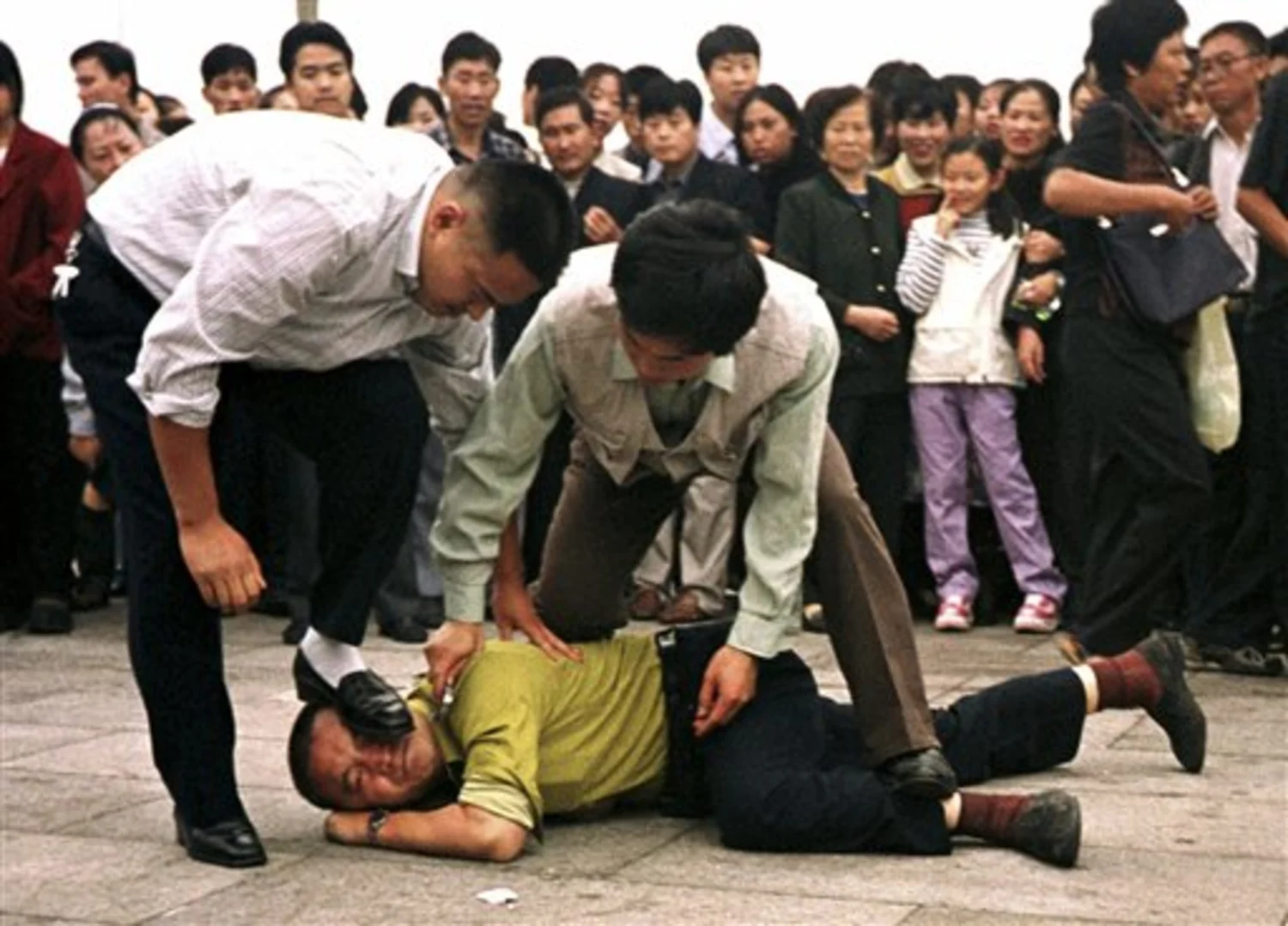China’s relentless crackdown on Falun Gong practitioners escalates in 2025
In a chilling continuation of its long-standing persecution of Falun Gong practitioners, China has ramped up its suppression of the spiritual movement in 2025.
According to reports from the human rights watchdog Minghui, at least 136 Falun Gong practitioners have been arrested and around 189 have faced harassment by Chinese authorities in just the first two months of the year.
These figures highlight the Chinese Communist Party’s (CCP) unwavering campaign to suppress freedom of belief, defying international condemnation and human rights norms.
Falun Gong, also known as Falun Dafa, is a spiritual practice rooted in meditation and moral teachings that emphasise truthfulness, compassion, and forbearance.
The practice gained widespread popularity in the 1990s, attracting millions of followers across China.
However, as its membership grew, the CCP, wary of any movement beyond its control, deemed Falun Gong a threat.
In 1999, then-CCP leader Jiang Zemin initiated a nationwide crackdown, labeling Falun Gong an “evil cult” and launching an aggressive suppression campaign.
Since then, millions of practitioners have been detained, tortured, and even killed in the name of “maintaining stability.”
Forced labour camps, illegal detentions, brainwashing centres, and reports of forced organ harvesting have marked the CCP’s brutal campaign against Falun Gong.
New wave of harassment in 2025
Despite decades of international outcry, the CCP continues to escalate its persecution.
According to Minghui, a site that meticulously documents rights violations against Falun Gong practitioners, arrests and harassment have surged in 2025.
In January 2025 alone, 97 practitioners were sentenced to prison terms ranging from six months to ten years, with an average sentence of over three years.
These sentences often come with hefty fines, cumulatively amounting to hundreds of thousands of yuan.
The charges are typically vague, and trials lack transparency, reflecting a broader pattern of judicial abuse.
The provinces with the highest number of arrests include Heilongjiang, Jilin, and Hebei, regions that have historically been hotspots for Falun Gong suppression.
In many instances, practitioners were arrested simply for possessing Falun Gong literature or sharing information about their faith.
Others were targeted through intrusive surveillance, often involving artificial intelligence and facial recognition technology.
Among those arrested is 67-year-old Li Minghua from Heilongjiang, who was taken from her home without warning. Her family has received no official explanation for her detention, and she has not been allowed to see a lawyer.
Another practitioner, Zhang Wei, was arrested in Jilin while distributing pamphlets about Falun Gong. His whereabouts remain unknown, raising fears that he may be subjected to forced labour or worse.
Beyond the arrests, the harassment of Falun Gong practitioners has intensified.
Reports suggest that authorities have coerced family members to pressure practitioners into renouncing their faith.
Some have been threatened with job losses or the revocation of their social benefits.
The surveillance state continues to expand, making it increasingly difficult for practitioners to communicate or organise in secrecy.
Suppression at all costs
China’s persecution of Falun Gong follows a familiar pattern of authoritarian suppression.
The CCP employs a range of coercive tactics, from imprisonment to psychological and physical abuse, to force practitioners into compliance.
Thousands of Falun Gong practitioners have been jailed without trial, often under vague charges such as “subverting state power.”
Reports from former detainees describe electric shocks, sleep deprivation, beatings, and even sexual abuse aimed at breaking their will.
Many practitioners are sent to forced labour camps, where they endure grueling work conditions and indoctrination efforts.
Meanwhile, multiple independent investigations suggest that Falun Gong practitioners have been targeted for their organs, fueling China’s lucrative transplant industry.
The CCP’s suppression machine is fueled by a combination of political paranoia and the desire to maintain absolute ideological control.
Unlike other religious groups, Falun Gong practitioners refuse to register under government-approved religious organisations, making them particularly vulnerable to state crackdowns.
Despite widespread documentation of abuses, the global response to China’s persecution of Falun Gong has been largely symbolic.
The U.S. government has condemned China’s treatment of Falun Gong, with some lawmakers calling for sanctions against Chinese officials involved in human rights abuses.
The European Parliament has passed resolutions condemning China’s forced organ harvesting practices.
However, these measures have had little tangible impact on China’s policies.
The United Nations, often criticised for its reluctance to challenge China, has made occasional references to Falun Gong in human rights reports but has failed to take concrete action.
Human rights organisations, including Amnesty International and Human Rights Watch, continue to push for accountability, yet China’s economic and political influence makes decisive international action unlikely.
The CCP’s escalating persecution of Falun Gong in 2025 calls for a renewed global effort to protect religious freedom in China.
The first months of 2025 have revealed yet another chapter in China’s unrelenting campaign against Falun Gong.
The CCP’s systematic persecution of religious groups continues unabated, reminding the world of the regime’s deep-seated intolerance for freedom of thought and belief.
If the global community fails to act decisively, thousands more will suffer unjust imprisonment, torture, and even death.
The fight for human rights in China is far from over, and the persecution of Falun Gong practitioners serves as a stark reminder of the ongoing struggle for religious freedom in the 21st century.













